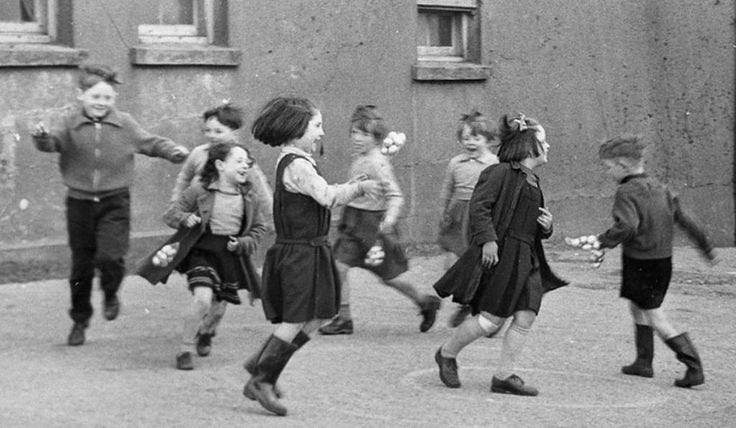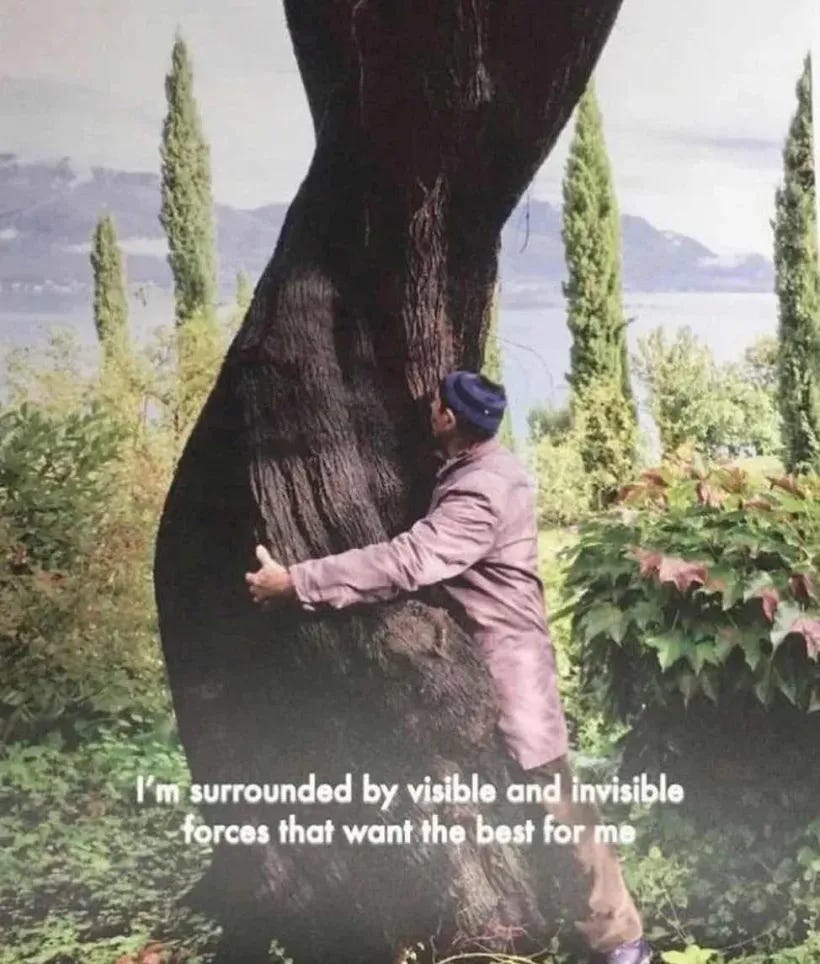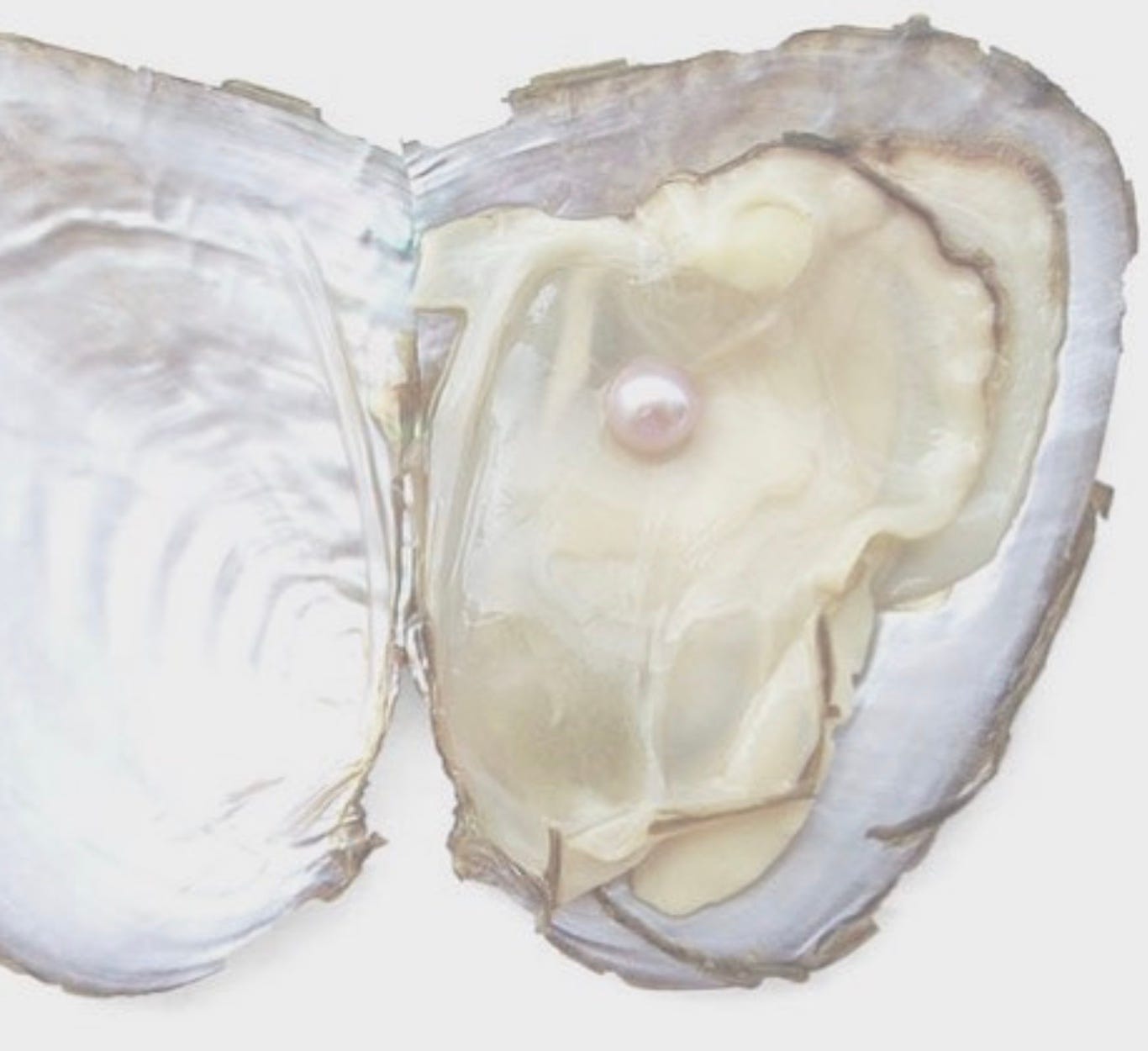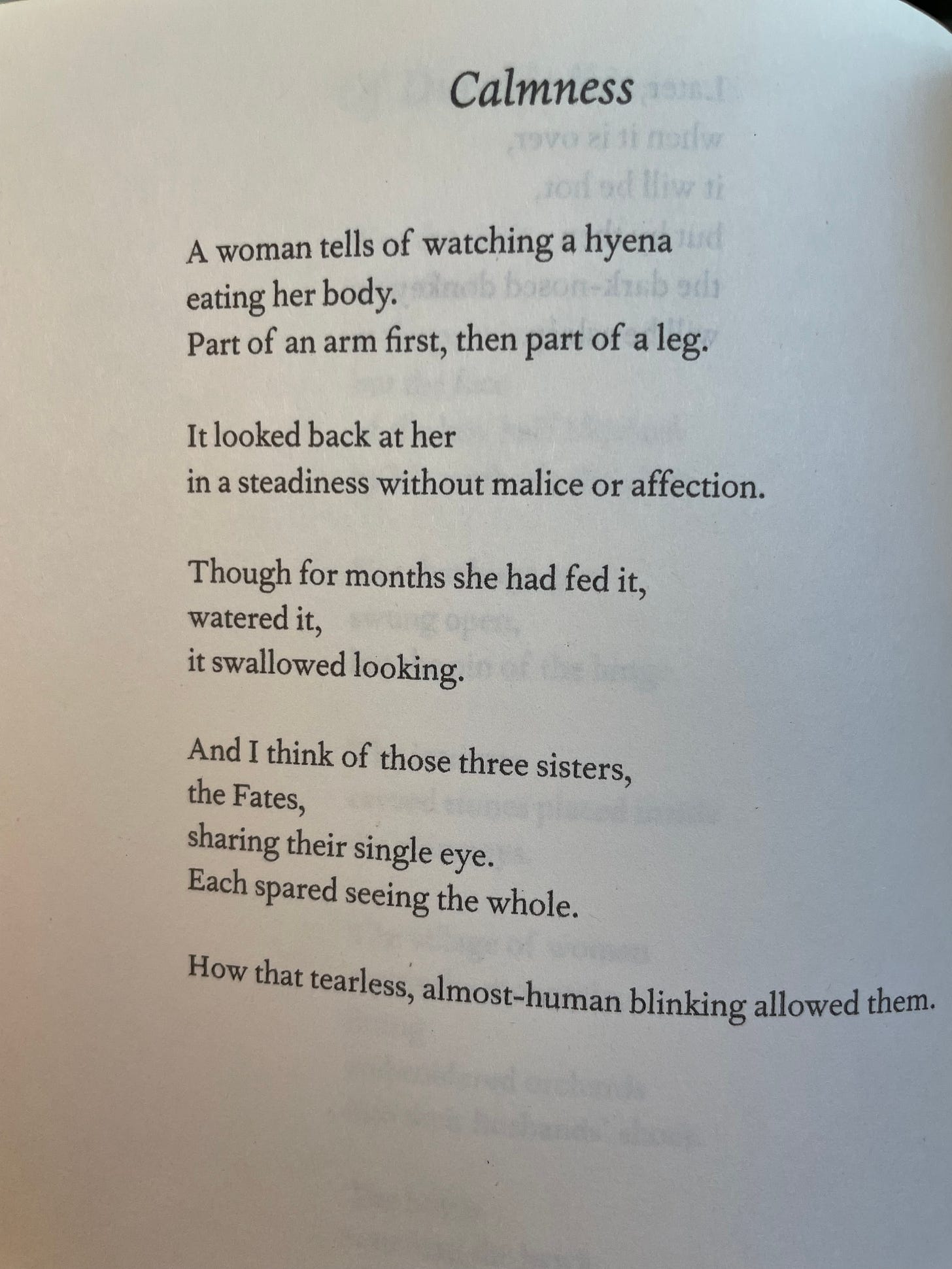Dear Sunday: encounters
the lost art of introductions, looking for likeness, & the everyday mind
A good introduction leaves two people feeling seen and curious. When introducing two people to one another, I take my time relishing each person, our connection, and what highlights to bring up.
ALL DAY is a reader-supported publication with essays, letters, and thought projects. Your presence here forms a connection that weaves our stories together. If my writing moves you, if my lists inspire you, if my prompts invite you deeper into yourself and to connect more deeply with your community, I invite you to become a paid subscriber to support this publication.
Dear Sunday is ALL DAY’s monthly essay written for all subscribers. There are at least three other features for paid subscribers. Check out what some of the ALL DAY readers have to say. And come join us! Love you!
It’s less about the facts (where you work, what you do) and more about essence: the moment she knew it was time to leave midwifery and learn to build furniture, how he once had a job building tables for the state capitol building. An introduction is an act of attention, of noticing the shape of a person and offering it, gently, to another. There’s a nuance in a beautiful introduction that comes naturally to me. In introducing people, there is an overlap we find between people, hoping to connect them.
Interestingly, the word encounter comes from the Latin in contra, meaning in opposition, against. It has tension baked into it—an unexpected meeting, a collision. It’s almost as if encounters were made for these times. Some startle us awake. Some arrive like a poem or a mirror: disruptive in their honesty.
I’ve been thinking a lot lately, with the general divide I feel among my people, that I want to introduce all the seemingly opposite people I know. I want to introduce people who are certain that they have nothing in common and overlap their lives for a fleeting moment. We are more alike than we are different, and an introduction is an encounter that allows for this likeness to exist. Is anyone else out there looking for an overlap? Looking for likeness?
There’s a Zen kōan I love.
With all his heart Zhaozhou asked his teacher Nanquan, “What is the way?”
Nanquan replied, “Ordinary mind is the way.”
Zhaozhou pushed, “Should I direct myself toward it, or not?”
Nanquan responded, “If you try to turn toward it, you betray your practice.”
Frustrated, Zhaozhou asked, “How can I understand the way if I don’t turn toward it?”
Nanquan explained, “The way does not belong to the realms of knowing or not-knowing. Knowing is delusion. Not-knowing is blankness. When you have attained the way, you will find it as vast as outer space. How can this be approached in terms of right and wrong?”
With these words Zhaozhou awakened.
Often, we enter an encounter trying to direct it—to present ourselves in the best light, to control how we are seen, or to imagine we know the outcome or that we know more about the person than we do. The most luminous meetings happen when we stop managing and allow ourselves to be. Our everyday mind—that is the way.
To me, the ordinary mind is the everyday mind, is like a beginner’s mind, is looking at each encounter or situation with new eyes.
A true introduction is not a resume or a performance. It is a portal, a reflection, a moment of being seen and seeing back.
I’ve been thinking about how rare it’s become to introduce ourselves to one another. We skim bios, scroll past faces, and rely on context clues. We’re always arriving late to who someone is. What if we slowed down and introduced ourselves exactly how we are? What if we don’t research the person we may meet before the meeting? To greet someone with your fresh eyes and a true introduction is to offer them presence. And presence, now more than ever, is a rare and radiant gift.
In Taoism, there’s a belief that all things carry their own te—their essential nature, or inner pattern. To see someone clearly is to witness their te, not just the role they play, but the current within. It takes attention. It takes looking. It’s the same with trees. You can say “oak” and know nothing of it’s bark, it’s shade, or it’s sound in a storm. But if you sit beneath the oak tree long enough, it reveals its te. So too with people. We reveal our nature in present moment, in gestures, in stories, in what we return to again and again. Introductions that make intentional room for te to exist increase the capacity for understanding, connection, and growth.
The word introduce comes from the Latin intro (into) and ducere (to lead).
To introduce is to lead someone inward—into presence, recognition, and perhaps even belonging. It’s more than social custom. It’s a kind of ceremony.
As we enter April—the month of poetry, of birth, of spring, of re-beginnings—I find myself wondering: how many introductions are waiting to be made? With others. In the natural world. With forgotten parts of ourselves.
Prompts for the Week
Introduce yourself to someone you see often but have never met.
Look a stranger in the eyes for one extra second.
Write an introduction for yourself that has nothing to do with your job or achievements. Don’t show it to anyone, but hold your te intimately. It unfolds around you anyway.
Reflect on an encounter that changed you, even briefly.
What about an encounter that was a certain fork in the road?
Have you ever thought about writing a letter to a business you visited and had a great encounter? Try that this week.
Other Sunday musings:
I am teaching a poetry workshop online in a few weeks with WritingWorkshops.com, and I’m thrilled about it! I’m also delighted to report that there is one spot left. I hope you’ll join us. This class the the culmination of my life’s work.
The Every Day:
How Honing the Craft of Image Brings Alive the Poem
I was thinking this week about how many things I get curious about, think about, want to do an explore. After visiting Charleston, I was telling my husband about a beautiful law office downtown. When I saw the office, I thought about law school and debate team in high school and being a lawyer. I asked Cody why he thought I go off into fantasy worlds like this, imagining my life down a path. He said “it’s because you’re a rare genius and are truly good at so many things so it’s actually realistic to consider these paths.” Sweet sweetie that he is. But I thought seriously about what he said.
It’s true: I’ll get introduced to an idea or job and unconsciously think I’d be good at that and I’d love that. Sometimes I spend hours and weeks and months researching something that interests me. Ultimately I reflected that this is one reason I love writing so much. I get to think about, research, explore, and introduce myself (and now you) to ideas and lifestyles and thought projects with a full-body YES.
I love you. If you’ve been considering joining ALL DAY as a paid subscriber, I welcome you, and would love to let you know that your reciprocity means the world to this reader-supported publication. I hope you will join, your generous support makes this project a sustainable model.
After a year of Sundays, I’ve gotten myself into a rhythm and a publishing schedule that feels exciting to me and many readers.
Of course, there are also ways to support the ALL DAY as a free subscriber: “like” the essay (I recently read a woman articulate that “liking” an essay is like clapping after a singer sings a song, after that I started using that little heart-shaped button all the time), share the essay, leave a comment, share the publication with someone you think would enjoy my explorations and thought projects as much as you do!
And, if you become a founding member, I will send you a hand-calligraphed letter at some point within the year (I like to intuit the timing of your letter to best connect with you). If my writing inspires you, consider supporting the publication.
Yours,
Lindsey










Thank you promoting goodness and connection. Thank you for easing my heart.